- News
- Reviews
- Bikes
- Components
- Bar tape & grips
- Bottom brackets
- Brake & gear cables
- Brake & STI levers
- Brake pads & spares
- Brakes
- Cassettes & freewheels
- Chains
- Chainsets & chainrings
- Derailleurs - front
- Derailleurs - rear
- Forks
- Gear levers & shifters
- Groupsets
- Handlebars & extensions
- Headsets
- Hubs
- Inner tubes
- Pedals
- Quick releases & skewers
- Saddles
- Seatposts
- Stems
- Wheels
- Tyres
- Tubeless valves
- Accessories
- Accessories - misc
- Computer mounts
- Bags
- Bar ends
- Bike bags & cases
- Bottle cages
- Bottles
- Cameras
- Car racks
- Child seats
- Computers
- Glasses
- GPS units
- Helmets
- Lights - front
- Lights - rear
- Lights - sets
- Locks
- Mirrors
- Mudguards
- Racks
- Pumps & CO2 inflators
- Puncture kits
- Reflectives
- Smart watches
- Stands and racks
- Trailers
- Clothing
- Health, fitness and nutrition
- Tools and workshop
- Miscellaneous
- Buyers Guides
- Features
- Forum
- Recommends
- Podcast
TECH NEWS
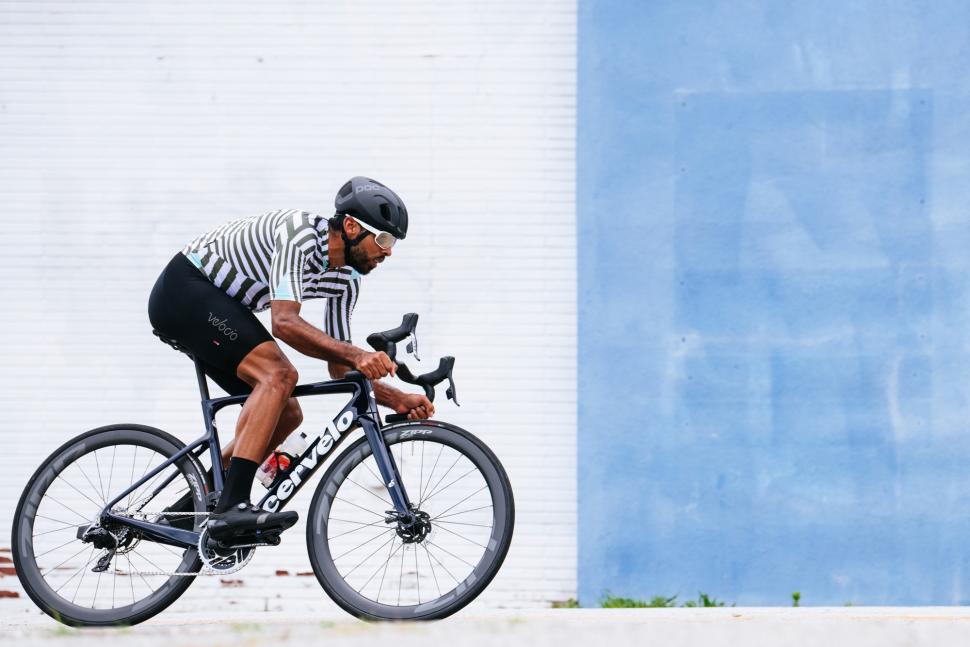 2021 Cervelo Caledonia action 4.jpg
2021 Cervelo Caledonia action 4.jpgCervélo launches Caledonia all-road bike range
Cervélo has launch a completely new series of performance road bikes called Caledonia, designed with a generous amount of tyre clearance and versatile enough to tackle a variety of surfaces.
Cervélo puts the Caledonia into a category that it calls 'modern road', meaning that it's intended to tackle tarmac, broken surfaces, potholes and dirt roads. Other brands use the 'all road' label for this kind of bike, although Cervélo is keen to emphasise that the Caledonia is 'race bred', and designed with the Paris-Roubaix pavé in mind.
There are actually two different platforms: Caledonia and Caledonia-5. They're both carbon-fibre and disc brake-specific, and they share the same geometry and levels of stiffness (222 N m/mm at the bottom bracket, 105 N m/degree at the head tube, for those of you taking notes).
However, the Caledonia-5 is lighter and has completely internal cable/hose routing on models with electronic shifting, whereas the Caledonia's cables/hoses are external between the handlebar and the frame/fork.
Here are a few bullet points to get you up to speed before we get into the details:
Caledonia
• Round bar, post, and stem
• Hose/cable routing partly external
• Bento mount
• Hidden mudguard mounts
• Clearance: 34mm tyres (31mm with mudguards)
• 1,031g frame, 432g fork (1,463g combined)
Caledonia-5
• Internal cable/hose routing (partly external with mechanical shifting)
• R5 D-Post seatpost and integrated clamp
• Integrated stem cap and split spacers
• Hidden mudguard mounts
• Clearance: 34mm tyres (31mm with mudguards)
• 936g frame, 370g fork (1,306g combined)
All of the figures quoted above are straight from Cervélo.
What's the Caledonia for?
What exactly is Cervélo aiming at with its new Caledonia and Caledonia-5 platforms?
"Pushing away traditional boundaries and genres, Caledonia is a race-bred bike that extends versatility and inspires confidence.
"Cervélo has applied knowledge gained from their extensive library of tube shapes to create a race bike that excels on variable road surfaces, striking a balance between durability, light weight and aerodynamics.
"Stiffness has been tuned to match that of [our] Aspero [gravel bike], while tube shapes have been placed in a layout that achieves the desired compliance to counter the frame deflection experienced by this rider.
"Geometry has been designed to slow down the handling informed by a specific use case, Paris-Roubaix, making the rider more comfortable, more confident and faster.
"Versatility extends to clearance for up to 700 x 34mm tyres, and a full proprietary mudguard compatibility." – Cervélo
Cervélo says that it describes the Caledonia and Caledonia-5 as 'modern road' bikes because they don't fit neatly into an existing category.
"It was conceived on our Thursday night rides – routes that often play fast and loose with ‘road ride’," says Cervélo. "As we tried to stuff bigger tyres into our R5s and streamline our Asperos, a new kind of bike was born."
Geometry
The Caledonia and Caledonia-5 share the same geometry.
The seat tube angle is about the same as you'll find on Cervélo's R-Series road bikes, but the head tube angle is a degree slacker and the fork offset is larger. The chainstays are also a little longer – 415mm rather than 410mm – increasing the wheelbase.
Find out how to read a bike geometry table
"We increased the rear centre [the horizontal distance from the centre of the bottom bracket to the centre of the rear wheel] compared with the R3 that was raced last year, lowered the bottom bracket, and increased the trail," says Cervélo. "Relatively speaking the handling is still fast, but we’ve added more stability."
Stack and reach (the vertical and horizontal distances between the centre of the bottom bracket and the top of the head tube, vital in determining fit), though, are exactly the same as those of the R-Series bikes. All other things being equal (stem length/angle, handlebar dimensions, and so on), your ride position is going to be the same across the two different platforms.
Integrated front end
The Caledonia-5 has an integrated front end with the brake hoses and Di2 gear wires running internally (although the gear cables on the mechanical shifting model are external between the handlebar and the down tube). The Caledonia doesn't have this level of integration.
"We continue to refine our internal cable routing solution; this has been an evolution of the S3, and is the latest step in our pursuit of integrated refinement across all fit ranges," says Cervélo.
"Having a clean and refined cockpit that is difficult to use or maintain is no solution at all, [so] split spacers carried forward from S3 allow you to adjust stack without re-cabling."
The fork comes with a D-shaped steerer with a split ring that allows brake hose and Shimano Di2 cable routing from Cervélo's existing AB09 carbon handlebar into the body of the stem and down into the frame.
The system uses standard sized bearings – 1 1/4in up top and 1 1/2in down below.
The Caledonia-5 has a slight step at both the top and bottom of the head tube – Cervélo calls these the forehead and chin, respectively – which you don't get on the Caledonia. The upper headset bearing cover sits in the top step. You can choose between a 7mm and a 22mm cover, the smaller option giving you the same fit as on Cervélo's R3 road bike.
The maximum stack on top of the head tube is 62mm – the 22mm cover and 40mm of interlocking spacers.
This all keeps the front end looking clean. Cervélo says that this isn't just aesthetic, the lack of exposed hoses/cables means there’s nothing interrupting the flow of air over the front end. The seat tubes of the two frames also feature the most subtle of rear wheel cutouts although the brand hasn't released any aero data related to the new bikes.
Other features
The Caledonia-5 has the same down tube cable entry port as Cervélo's R3 road bike. The cables enter here on models with mechanical shifting, while the junction box sits in this space on models with Di2 electronic shifting.
The Caledonia takes a round seatpost whereas the Caledonia-5 (above) features a R5 D-Post which, as the name suggests, has a D-shaped profile, designed to offer extra compliance. The Caledonia-5 also has an integrated clamp while the Caledonia has an external collar.
Both platforms are equipped with a dual faceplate mount for the front of the stem that allows the use of computers (there are inserts for Garmin and Wahoo systems), cameras, and other accessories.
There's another accessory mount integrated into the saddle clamp. If you don't want to use any accessories, you can flip the mount around so that it's hidden underneath the saddle.
Both the Caledonia and the Caledonia-5 use standard 12mm thru axles front and rear and have a front derailleur mount that's removable to neaten things up if you want to run a 1x drivetrain. They're each equipped with two sets of bottle cage mounts although it's only the Caledonia that comes with bento box mount points on the top tube.
Both platforms come with removable alloy dropout mudguard mounts and a plastic seatstay bridge. You also get low-profile mount points at the back of the fork crown and behind the bottom bracket.
The ride
We've not had the chance to ride either the Caledonia or the Caledonia-5 so we can't give you a first-hand report of how they feel in use. Sorry. We can tell you, though, that Cervélo designed these bikes to handle Paris-Roubaix and, more specifically, its cobbles.
"When we design a bike, we start with our library of tube shapes," says Cervélo. "These are shapes we’ve used on other models that we know to have various qualities – aerodynamic, stiff, ultralight, etc – and they help get us to the refinement stage on a bike more quickly. In the case of Caledonia, we wanted durability, light weight, and
aerodynamics to be in balance, and selected a package that achieved the performance demands of this kind of race bike."
Cervélo says that it tuned stiffness to match that of its Aspero gravel bike, and wasn't tempted to add extra elements, like elastomers, designed to enhance comfort.
"You can’t cheat physics," says Cervélo. "Triangulation and the force required to deflect is at the heart of the ‘double-diamond’ frame design, and has been since the safety bicycle’s inception. We know how our tube shapes behave, and it’s a matter of placing them in a layout that achieves the desired compliance based on that deflection. The simplest solution is almost always the best.
Cervélo says that it has used lower modulus carbon in key areas to avoid the brittleness of high modulus carbon and so improve durability.
Models and prices
There are five different Caledonia-5 models, three of which include power meters:
Caledonia-5 Dura-Ace Di2 £9,699
Groupset Shimano Dura Ace Di2
Power meter 4iiii Precision Dual Power
Wheels Enve SES 3.4 AR Disc
Tyres Vittoria Corsa Control TLR 28mm
Caledonia-5 SRAM Red eTap AXS £9,299
Groupset SRAM Red eTap AXS
Power meter SRAM Red AXS
Wheels Zipp 303 S
Tyres Vittoria Corsa Control TLR 28mm
Caledonia-5 Force eTap AXS £6,399
Groupset SRAM Force eTap AXS
Power meter SRAM Force AXS Power Meter
Wheels Reserve 35/DT 370
Tyres Vittoria Corsa Control TLR 28mm
Caledonia-5 Ultegra Di2 £5,799
Groupset Shimano Ultegra Di2
Wheels Reserve 35/DT 370
Tyres Vittoria Rubino Pro TLR 30mm
Caledonia-5 Ultegra £5,299
Groupset Shimano Ultegra
Wheels DT Swiss E1800
Tyres Vittoria Rubino Pro TLR 30mm
The Caledonia is available in three different builds:
Caledonia Ultegra Di2 £4,199
Groupset Shimano Ultegra Di2
Wheels DT Swiss E1850
Tyres Vittoria Zaffiro 30mm
Caledonia Ultegra £3,399
Groupset Shimano Ultegra (mechanical)
Wheels DT Swiss E1850
Tyres Vittoria Zaffiro Pro TLR 30mm
Caledonia 105 £2,799
Groupset Shimano 105
Wheels Alexrims Boondocks 5-D
Tyres Vittoria Zaffiro Pro TLR 30mm
Cervélo says that the Caledonia range will be available from today.
Mat has been in cycling media since 1996, on titles including BikeRadar, Total Bike, Total Mountain Bike, What Mountain Bike and Mountain Biking UK, and he has been editor of 220 Triathlon and Cycling Plus. Mat has been road.cc technical editor for over a decade, testing bikes, fettling the latest kit, and trying out the most up-to-the-minute clothing. He has won his category in Ironman UK 70.3 and finished on the podium in both marathons he has run. Mat is a Cambridge graduate who did a post-grad in magazine journalism, and he is a winner of the Cycling Media Award for Specialist Online Writer. Now over 50, he's riding road and gravel bikes most days for fun and fitness rather than training for competitions.
Latest Comments
- No Reply 13 min ago
I still have my custom Hewitt bike, bought in 2008, ridden around 70,000 miles on it and still looking like new. If you buy a quality item and look...
- Rendel Harris 27 min 54 sec ago
He advocates only riding mountainbikes solely offroad for ultimate safety, which is great if you're a millionaire of leisure living in Colorado...
- ktache 59 min 2 sec ago
That looks like a fun bike. Frame only, 2 and an 1/2 grand.
- Robert Hardy 1 hour 14 min ago
But down the line it can put a big dent in its resale value which ups leasing costs and the amount of cash an owner is throwing at their status...
- wtjs 1 hour 55 min ago
Fair enough, personal experience may trump (not that one) theory. However, the bonking I have experienced has been due to lack of carbs. Your point...
- wtjs 2 hours 8 min ago
Agreed, but he was still right to publicise the event. The police, if they're anything like Lancashire, will do nothing at all.
- Rendel Harris 3 hours 22 min ago
mdavidfrodo?
- wtjs 7 hours 1 min ago
in the UK we have policing which to a greater or lesser extent relies on assistance from members of the public......
- Cadcam 8 hours 6 min ago
Just wanted to share a quick thank you to everyone who helped out in this thread....

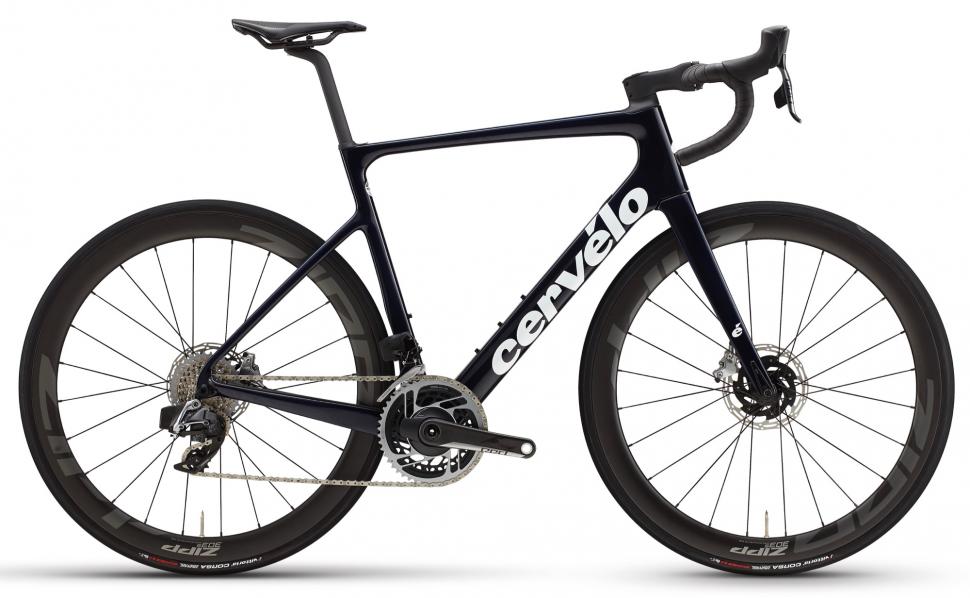
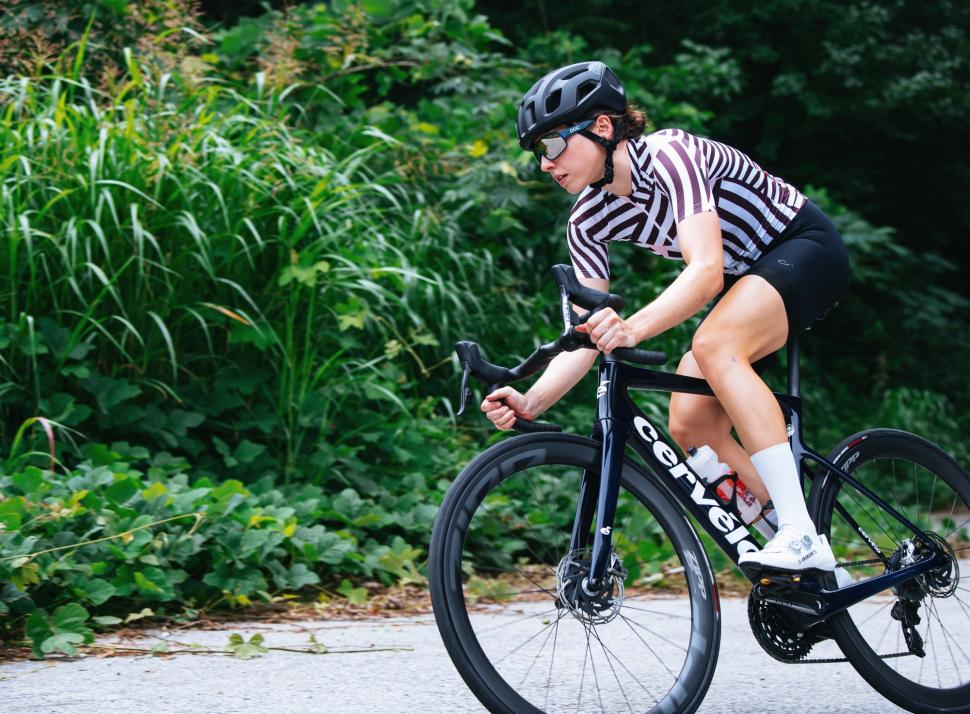
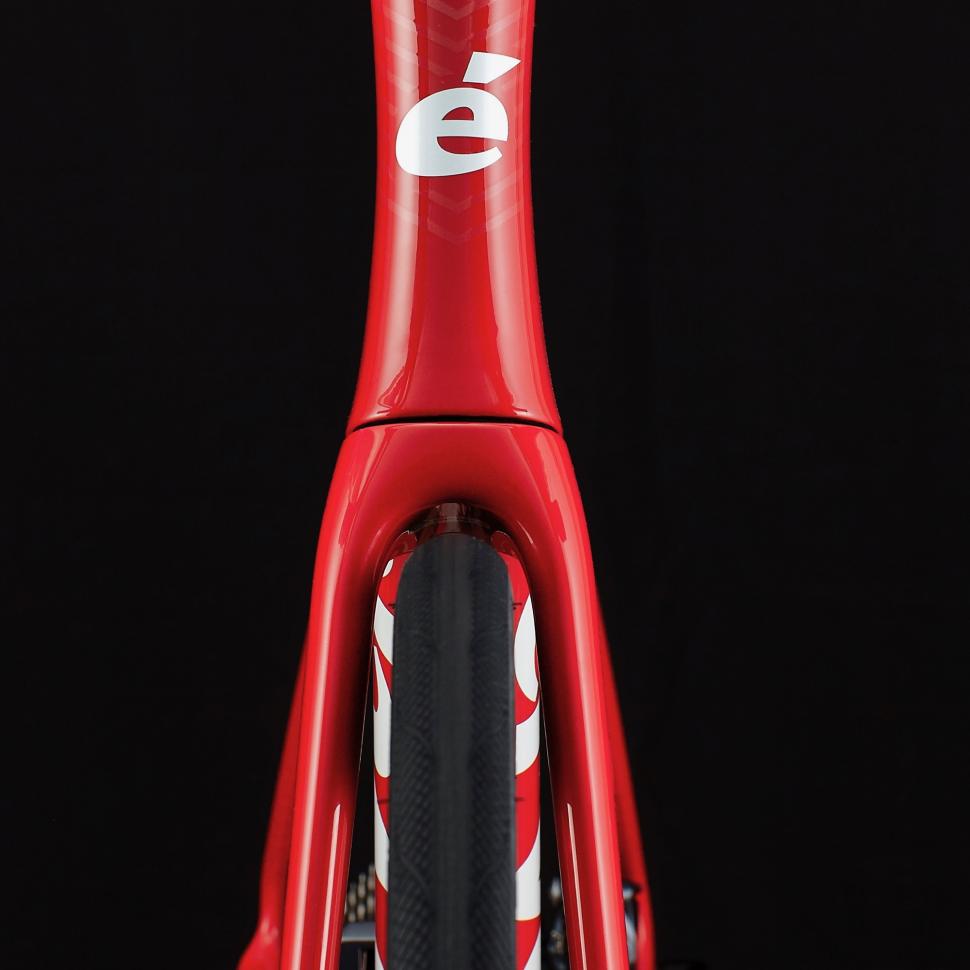
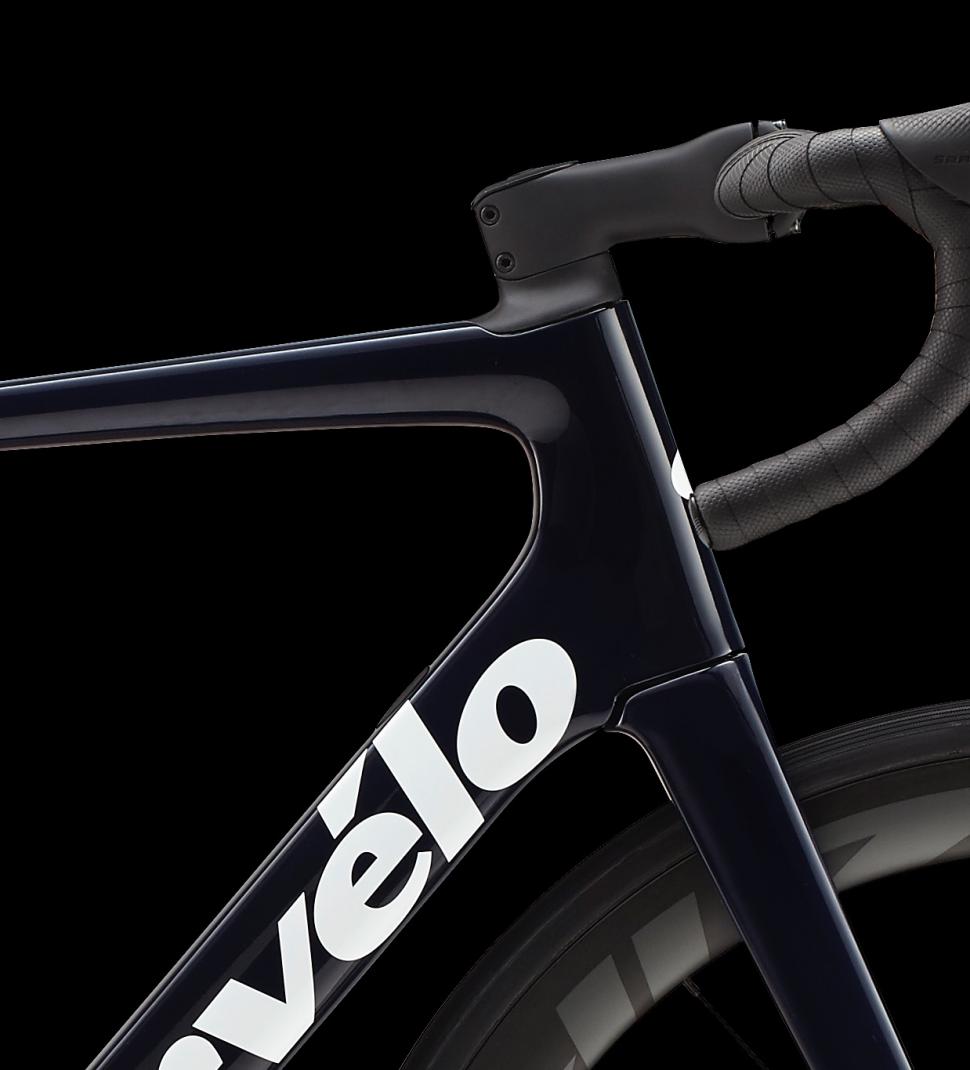
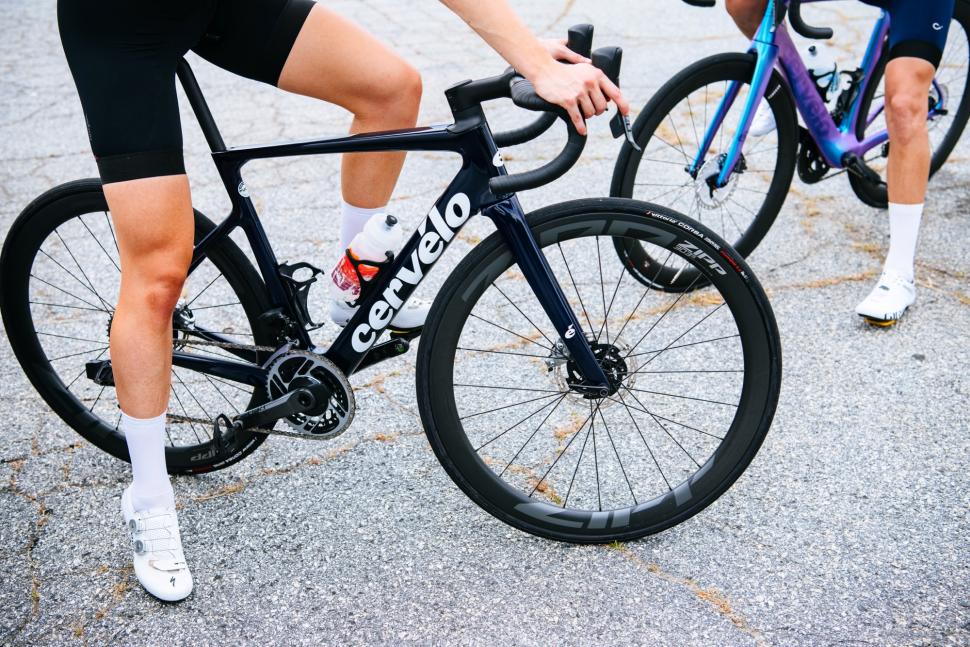
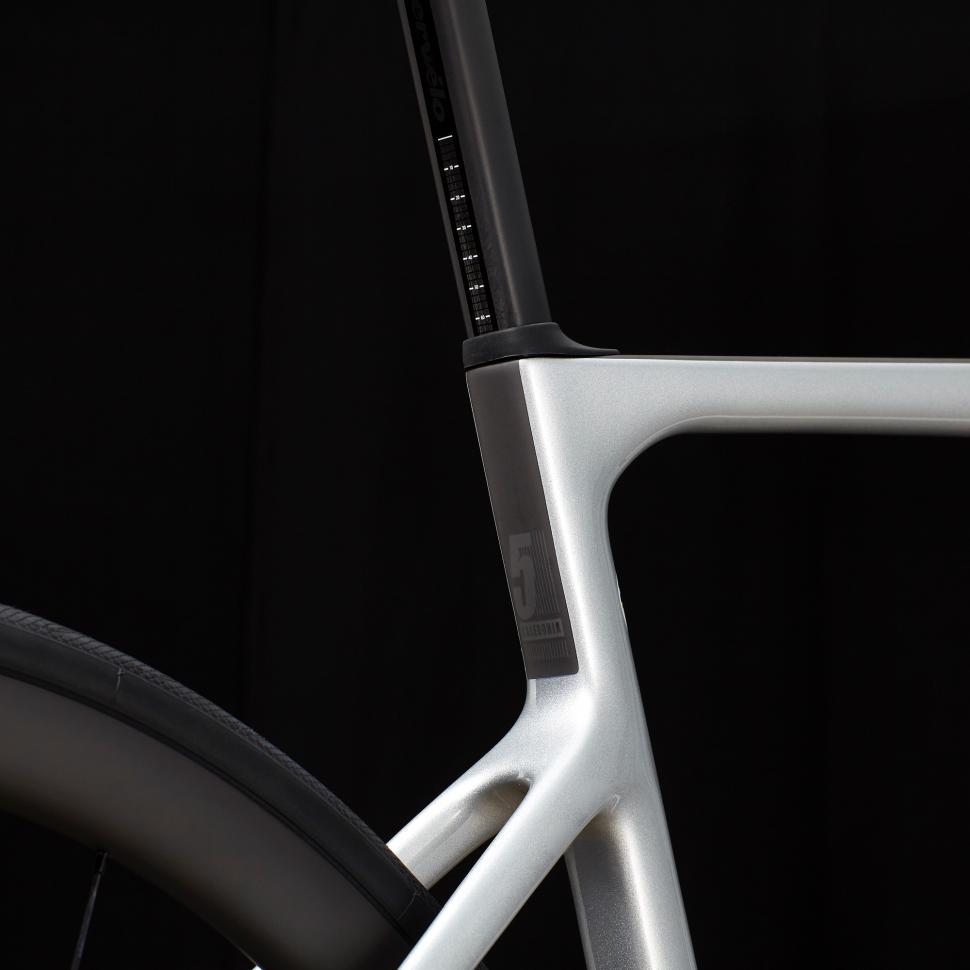
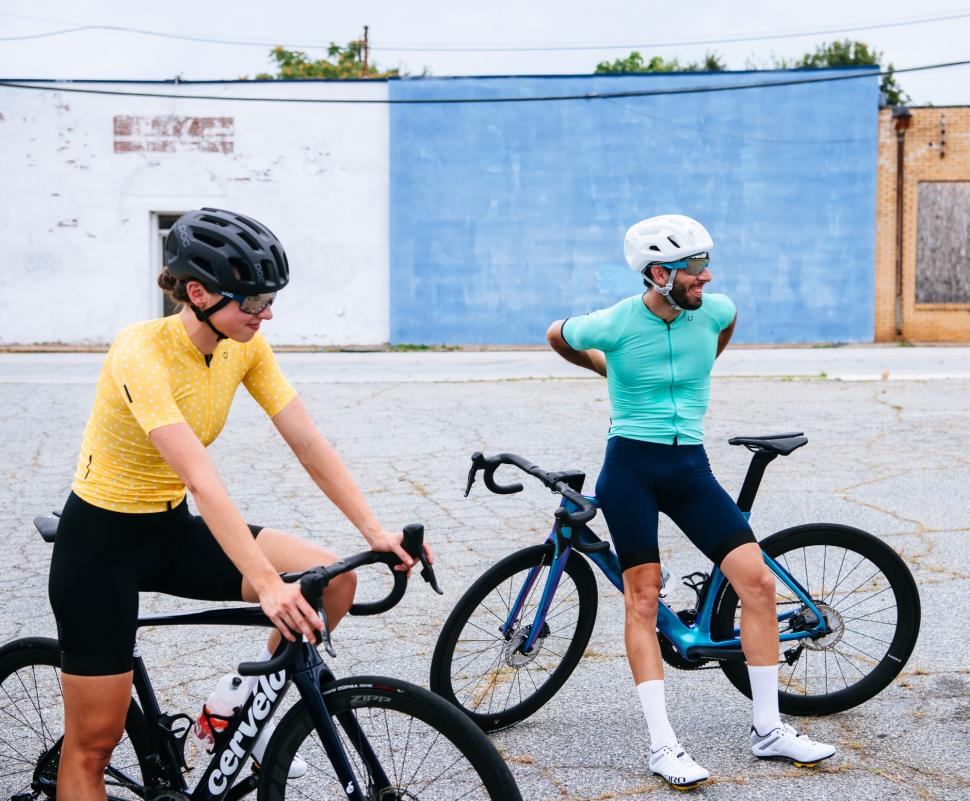
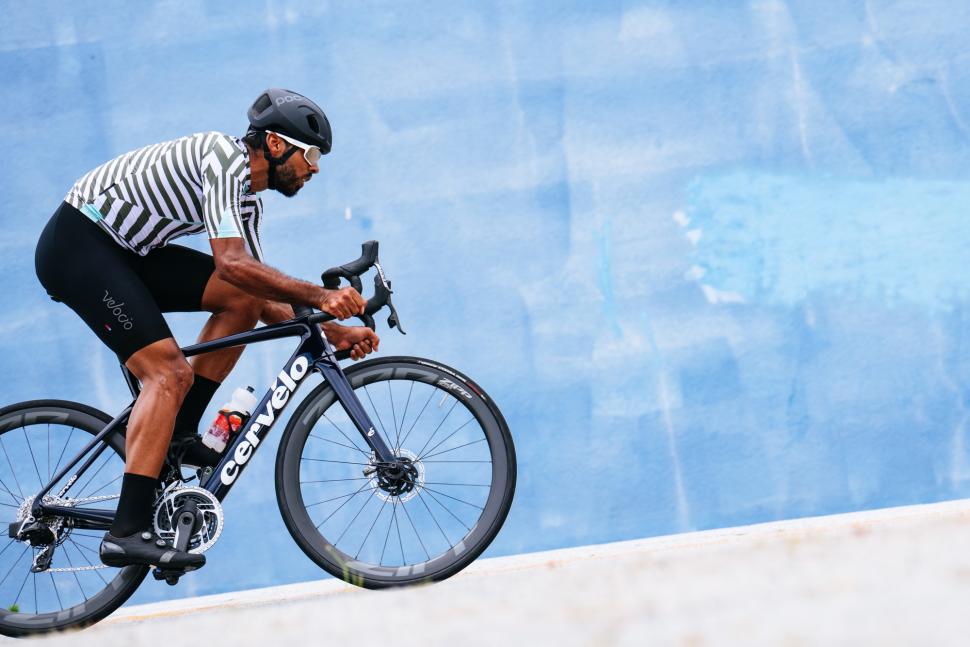
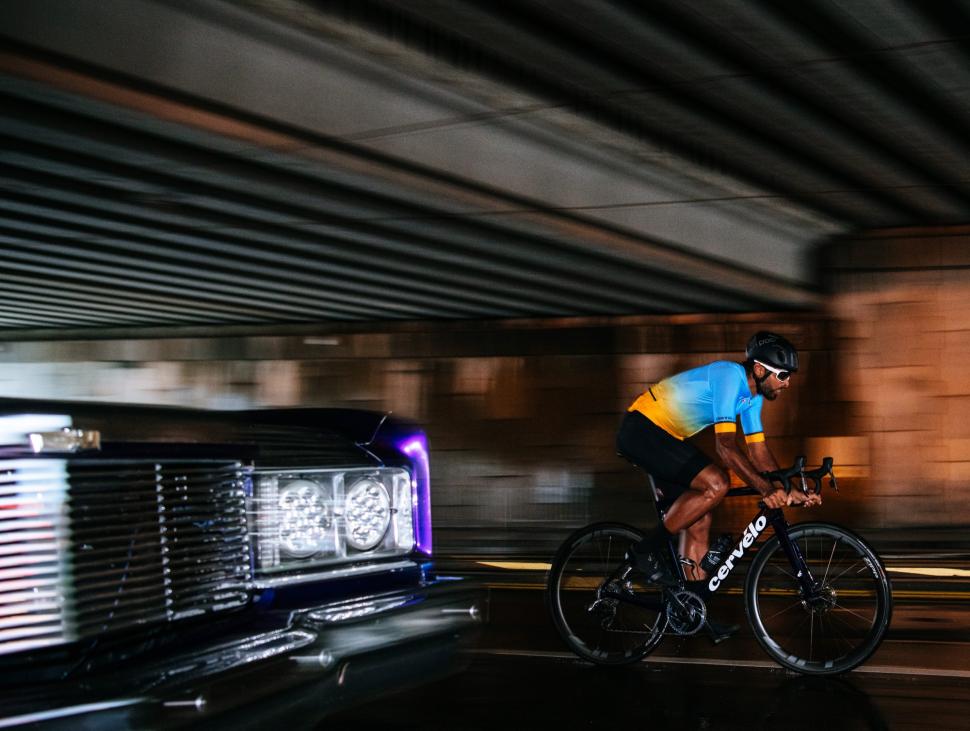
Add new comment
10 comments
So how does this compare to their C range? Does it sit alongside or is it a replacement?
£2,799 for a 105 version? Really?? About 1K too much.....
Oh come off it. It was designed after someone from Cervelo was invited out for a ride by one of their Scottish mates to experience the wonderful delights that only cycling in Caledonia can offer - i.e. Broken roads with carbon rim eating, hub deep potholes, strewn with broken glass, razor sharp gravel, sunken drain covers, wind blown sand and all covered in 3 inches of water disguising any of the above hazzards untill you hit them at speed. Pretty sure the roads in Bosnia, Iraq and Afganistan during the conflict were in a better state!
All the Scottish Cervelo stockists will be loving that new name!
Until I find a disc brake that stays quiet in typical Scottish conditions (cold, wet) I'll be sticking to day dreaming about a rim braked R-Series though...
My Campag H11s don't make a sound in the wet. I even have a BBRight/UltraTorque conversion BB I can sell you...
A year ago I'd have scoffed at such a stupid bike with its big tyres and clearance but after moving to Ireland and the stunningly shite roads i can see exactly why someone would buy this.
my cervelo s3 over here is just bloody annoying after 70 miles with the constant pounding. Rapha and castelli bibs and lower tyre pressure sometimes aren't a substitute for a bit of extra sidewall.
note - someone needs to fire the person responsible for the cervelo colour choice. The range is full of shite colours.
Not hugely inspired by the looks of this bike. Makes me love the skinny stays on my R2 Cervelo.
All new bikes look like a Canyon Aeroad. Fact.
34mm tyre clearance? So 32mm tyres then. Like every other disc brake endurance bike out there...
Sounds like a sleeper.